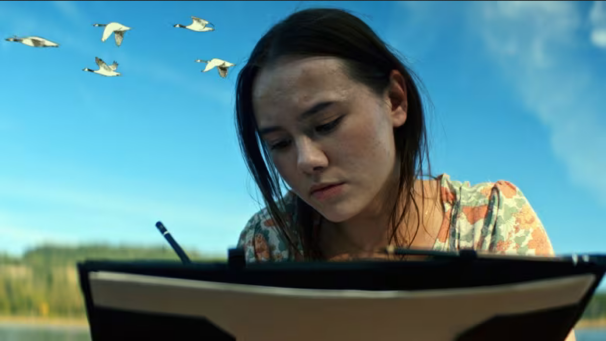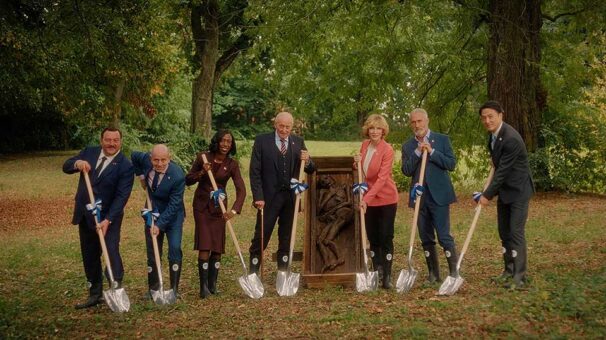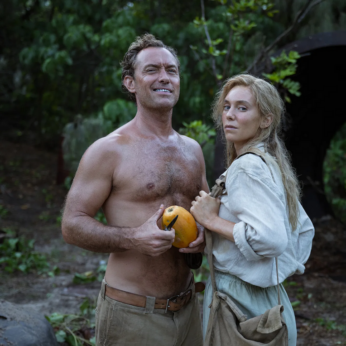
TORONTO — Let me close out my coverage of this year’s Toronto International Film Festival by mentioning some important films by outstanding master directors, as well as a look at Canadian cinema that is always a highlight at the Festival. Canada, along with the U.S., has a shameful history of treatment of Native peoples, and this angst is often the subject of their films, many made by the victims themselves through the burgeoning First Nation film community. Aberdeen is a powerful drama that focuses on a Native woman fighting generational trauma. It relates the tragic social decline of Native peoples trapped in a society of oppression and their valiant and often impossible attempts at overcoming their burdens.
The Knowing follows Anishinaabe journalist Tanya Talaga in her quest to find out what happened to her great-great-grandmother. As in the U.S., where it’s difficult to search the history of African slaves, in Canada many children were kidnapped from their families, stripped of their culture and identity, and severed from their rich heritage. This is an emotionally powerful four-part series in search of Canada’s true history.

Many films now are based on the growing anxiety about the failing economy, climate change, and endless wars. Probably one of the most popular Canadian films at TIFF is the fantasy film Can I Get A Witness? which offers an extreme but possible solution to the world’s problems of poverty, war, and climate change. In this idealistic future, technology and travel are banned, and no one is allowed to live past 50! Though devoid of any class analysis, this thoroughly charming and thought-provoking film with its unreal premise nonetheless offers the chance to address important questions about human behavior and the future of mankind.
Canadian post-apocalyptic thriller 40 Acres offers a much darker and extremely violent view of the future. First laying out how people on Earth screwed up and got to this panic point of food scarcity, extreme pollution, and rampant violence, it then portrays how a Black and Indigenous family of survivors try to fend off invaders while existing on the few remaining resources on Earth. It is also devoid of any class analysis, but for those who can handle extremely hateful dialogue and behavior, its other attributes might be rewarding.
Another Canadian film that deals with survival, but in the present day, charts the challenges a Black family faces living in a violent housing complex in NW Toronto. Village Keeper is the first film by writer/director Karen Chapman, who presents us with the emotional journey of a single mother living in cramped quarters with her mother, daughter, and son, who are daily confronted with potentially deadly encounters. It’s a common theme but presented in a fresh manner with compassion and an outstanding performance by Olunike Adeliyi in the lead role.
From the masters…

The latest from eccentric master Winnipeg auteur Guy Madden is the wacko genre-bending satire entitled Rumours. G7 leaders of seven wealthy nations (you know who they are) become targets of ridicule as they meet in the woods to draft a statement about a world crisis while chaos accumulates around them. Star actors like Cate Blanchett are cast in atypical roles, such as a British actor playing the U.S. president, where they end up accomplishing nothing and barely making it out of the woods alive. Loaded with laughs and strange happenings, the political message is a bit difficult to ascertain, other than that these buffoons are not making the world better for everyone.

Other master directors appearing at TIFF include the British working-class hero, Mike Leigh (Secrets and Lies, Life Is Sweet), whose latest, Hard Truths, features the esteemed actress Marianne Jean-Baptiste, in a role that is so unpleasant and overacted, that it’s almost difficult to watch all the way through. She carries only one constant emotion, anger, and heaps it on everyone she encounters, neighbors, store workers, her overweight son who confines himself to his bedroom to avoid his mother, and her meek husband who barely gets a word in edgewise. Disappointing from a revered director.
The famed Brazilian director Walter Salles (Motorcycle Diaries, Central Station) is in top form with his latest, I’m Still Here, about the disappeared in 1970s Brazil during its military dictatorship. Salles knew the family personally, which adds an air of intimacy and truth to what the family had to endure. The loving relationships between father, mother, and five kids are a model for and a testament to the lives of progressive activists. Their real house was used for the location, and archival photos of the original family are shown throughout the film. It’s an unforgettable and moving experience.
And finally, to close out my coverage of the many great films at TIFF, the well-known U.S. director and producer of over 150 films, Ron Howard (Frida, Frost/Nixon) presents his latest historical reenactment, Eden, one he also wrote, which tells the true story of a German couple who fled Nazi Germany in the 1930s to live a simple, natural life alone on a barren island in the Galápagos. What happens in this idyllic uninhabited setting, as others eventually hear of this “paradise” and bring their own ideas of how humans should interact, provides the meat of the film. Strange things happen and they soon learn, “It’s not paradise, it’s a trap.”










